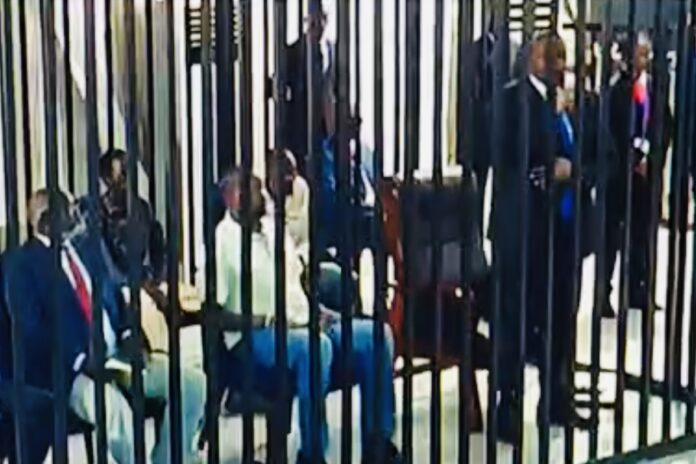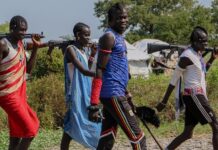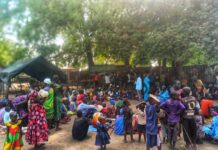In a move widely condemned as a blatant assault on press freedom, independent journalists were denied access to the first court hearing of suspended First Vice President Dr. Riek Machar on Monday, raising serious concerns about transparency and accountability in South Sudan’s judicial process.
Reporters from both local and international outlets were turned away at the gates of Freedom Hall, where the trial commenced under heavy security. Only journalists from the state-run South Sudan Broadcasting Corporation (SSBC) were allowed inside, under an opaque directive that was not publicly communicated in advance.
The exclusion of independent media has triggered a wave of criticism from journalists’ unions, civil society leaders, and constitutional watchdogs, who say the decision violates fundamental rights enshrined in South Sudan’s Transitional Constitution.
“This is a direct attack on press freedom and a shameful violation of Articles 24 and 32,” the Union of Journalists of South Sudan (UJOSS) said in a strongly worded statement. “It is unacceptable that our members—who represent the voice of the people—were barred while only state-controlled media were given access.”
Nyibang Tulba, Press Secretary in the Office of Justice, confirmed that the media restriction was enforced based on a previously undisclosed requirement for clearance from the Ministry of Information.
“We were told all journalists must be cleared by the Ministry,” Tulba said. “But this was not communicated earlier I myself was denied entry.”
The trial, which centers on charges against Dr. Machar and several members of the SPLM-IO related to the outbreak of violence in Nasir earlier this year, was expected to be open to the public. Machar’s legal team has denied all allegations, calling the case politically motivated and an attempt to silence opposition voices.
Civil society organizations joined the growing chorus of condemnation. Edmond Yakani, Executive Director of the Community Empowerment for Progress Organization (CEPO), decried the media blackout as a dangerous precedent.
“We were told this would be a public trial. Blocking journalists sends the opposite message,” Yakani said. “Selective transparency undermines the integrity of the justice system. If the courtroom is truly open, it must be open to all—not just handpicked government outlets.”
Yakani also urged citizens to avoid spreading rumors and hate speech in the absence of verified information, warning that restricted access to proceedings only fuels misinformation.
CEPO called on the judiciary to assert its independence and ensure future hearings are open to all accredited journalists, not just those affiliated with state media.
“A free press is the cornerstone of democracy,” the organization said. “Media restrictions must be lifted immediately if South Sudan is serious about upholding the rule of law and public trust in its institutions.”
As public scrutiny intensifies, pressure is mounting on the Ministry of Justice and the judiciary to reverse what many see as a disturbing erosion of democratic norms.





